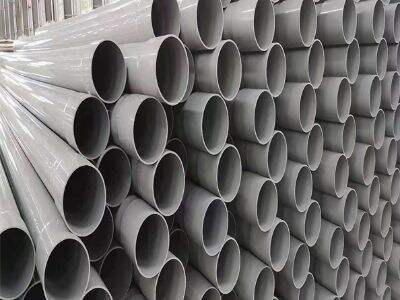Read about the various sizes of pipes used to transport liquids and gases from one point in a chemical production facility to another. How come these pipes are different sizes and how thick can they get? Let us learn about the sizes and thickness of pipes in the world of pipes used in chemical production.
Piping in Chemical Production: Different Sizes
There are different pipe sizes that are used in chemical production. These are arbitrary segments measured in inches, which may be small (an eighth of an inch wide) or large (three or four inches wide). The diameter of a pipe has a major impact on pipe operation because it is directly associated with the amount of liquid or gas flowing through the system. The right pipe size is crucial for the smooth operation of chemical production.
Why Wall Thickness Matters
It is also critical within chemical processing, the wall thickness of a pipe. The Pipe Thickness indicates the water pipe cpvc strength and ability to handle high pressure and temperature. Some pipes carry dangerous or harmful materials that must not leak during transport, and thicker walls help prevent these leaks to protect the workers and the environment. And it costs a lot less to use thinner walls for pipes that transport less volatile substances, and this also allows achieving better functioning.
Pipe Sizes in the Chemical Industry
In the chemical, in the industry, some size of pipe is used more frequently, and to be very useful. Pipe 1 inch, 2 inches and 3 inches wide are commonly used for transporting fluids and gases in the chemical production facility. This works well having enough in them, while not being too bulky. Larger piping, typically 4 inches in diameter or greater, used for major pipelines transporting large quantities of high mass-density materials over long distances.
Choosing the Right Pipe Size
There are several factors you should consider when selecting a pipe size for your chemical production. At the outset, determine what amount of material will pass through the pipe. This helps you determine the appropriate size to ensure that everything runs smoothly without interruption. Then, consider the layout of your facility and determine how much space you have to accommodate pipes. Pick a size that’s comfortable, allows for changes later, if necessary. Finally, consult a licensed engineer or upvc underground pipe distributor to help you determine the right size for your application.
Pipe Wall Thickness for Various Pipe Materials
Pipes are made with distinct materials in chemical manufacturing and each material contains unique characteristics. Depending on the material and the specifications of the job, the thickness of a pipe can vary. Stainless steel, for example, is resilient and resistant to rusting, so it can have thin skin. PVC pipes are light and cheap but may require thicker walls to deal with some of the chemicals. This will help you find out the thickness of different pipe materials and select the right one.

 EN
EN
 AR
AR
 BG
BG
 HR
HR
 CS
CS
 DA
DA
 NL
NL
 FR
FR
 DE
DE
 EL
EL
 HI
HI
 IT
IT
 JA
JA
 KO
KO
 PL
PL
 PT
PT
 RO
RO
 RU
RU
 ES
ES
 SV
SV
 CA
CA
 TL
TL
 IW
IW
 ID
ID
 LV
LV
 SR
SR
 SK
SK
 SL
SL
 UK
UK
 VI
VI
 SQ
SQ
 HU
HU
 MT
MT
 TH
TH
 TR
TR
 MS
MS
 BE
BE
 KA
KA
 PA
PA
 XH
XH

